D-SNP plan and contracts, grant deadlines, new monthly HEDIS reports + APL updates
Alliance D-SNP plan coming soon: sign your contract amendments!
The Alliance is proud to announce that our TotalCare (HMO D-SNP) will be effective Jan. 1, 2026!
To participate in the D-SNP network, please return your signed amendments before Feb. 3, 2025. For questions, please contact your Provider Relations Representative.
Background
DHCS’s CalAIM program now requires all Local Health Plans of California to offer an exclusively aligned enrollment Dual-eligible Special Needs Plan (D-SNP) by Jan. 1, 2026. A D-SNP is a type of Medicare Advantage plan specifically designed for individuals who are eligible for both Medicare and Medi-Cal.
Value to providers
D-SNPs can provide significant value to providers by:
- Increasing revenue through assigned care managers who help reduce staff administrative burden.
- Helping manage the complex needs of dual-eligibles more effectively through care coordination.
- Providing a coordinated system that reduces the number of avoidable hospital readmissions that negatively impact revenue under traditional Fee-For-Service (FFS) Medicare.
- Working with only one insurance entity (the Alliance’s TotalCare plan), as opposed to working separately with Medicare and Medi-Cal.
- Addressing social determinants of health such as housing, food insecurity and transportation, improving patients’ well-being and reducing the overall burden of care.
D-SNPs also reduce out-of-pocket costs for dual-eligibles, which improves adherence to treatment plans and increases patient satisfaction. When patients are more engaged, their health is improved and costly interventions are reduced, promoting a more stable provider revenue stream.
We are excited for our provider partners to participate in this significant new line of business!
Apply to the Alliance’s grant program by Jan. 21!
Apply to the Alliance’s Medi-Cal Capacity Grant Program by application deadline Jan. 21! The program offers funding opportunities to providers and community organizations through a competitive grant process. Award decisions will be made on April 4, 2025.
Data Sharing Program
Apply for the Data Sharing Support Program, which awards up to $250,000. This program helps primary care providers, including pediatricians, set up an electronic health record (EHR) that meets Medi-Cal requirements, by sharing real-time health care data and connecting to a heath information exchange (HIE). Grants can cover planning and implementation costs for infrastructure, operational solutions and technical assistance, including consultant engagements.
This program also supports providers in participating in the Alliance’s Data Sharing Incentive, which offers additional funding to help providers meet statewide requirements.
Workforce Recruitment Program
The Alliance is committed to strengthening the Medi-Cal provider workforce and addressing provider shortages through the Workforce Recruitment Program with awards ranging from $65,000 to $250,000. These programs help to cover recruitment costs for community health workers, doulas, medical assistants and health care professionals in the Alliance service areas.
To strengthen the cultural and linguistic competency of the provider network, the Alliance offers an additional $10,000 Linguistic Competence Provider Incentive per qualifying language for Workforce Recruitment Program grantees who hire bilingual providers.
Monthly HEDIS MCAS reports now available
Providers can now view monthly HEDIS Managed Care Accountability Sets (MCAS) reports on the Provider Portal to help track their HEDIS performance. These reports are snapshots of what your final rates could be and include continuous enrollment (CE) criteria.
The California Department of Health Care Services (DHCS) requires the Alliance perform an annual compliance audit that includes a subset of National Committee for Quality Assurance (NCQA) HEDIS measures. The Alliance may be sanctioned if these measures fall below the minimum performance level (MPL).
The HEDIS (MCAS) reports include the following:
- Summary and Performance Report: Provides visibility on the number of members who qualified for the measures and received the necessary services, the clinic’s rate of performance and the percentiles for each measure.
- Measure Details Report: Includes a list of members who qualified for the measure and received services. This list can be compared to the clinic’s Electronic Health Record to assess if data is missing and clinics can upload this information to the Alliance’s Data Submission Tool.
- HEDIS Gap Analysis Report: Provides an estimate of the number of fewer/additional visits that were needed to receive compliance in the measure. This report also includes the clinic’s performance rate and percentiles for each measure.
The HEDIS reports are similar to CBI reports. The MCAS and CBI reports are different from the monthly Quality Reports which include your clinic’s entire linked membership. Please contact your Provider Relations Representative if you have questions or would like a training on navigating these reports.
Review November APL updates
The Department of Health Care Services (DHCS) has made updates to multiple All Plan Letters (APL). These changes are important to know, as they may impact how you provide services.
The following APLs have been updated:
- DHCS APL 24-012: Non-Specialty Mental Health Services (NSMHS): Member Outreach, Education, and Experience Requirements. DHCS APL 22-005: No Wrong Door for Mental Health Services Policy. For more information about these APLs and others, you can visit our All Plan Letters webpage. You can also find related Alliance policies and procedures in the Alliance Provider Manual.
- DHCS APL 24-013: Managed Care Plan Child Welfare Liaison. This APL clarifies the intent and objectives of the Medi-Cal Managed Care Plan (MCP) Child Welfare Liaison, formerly referred to as the Foster Care Liaison. Important resources for this APL include:
- Youth Bill of Rights: The California Department of Social Services provides resources regarding the rights of foster youth, including documents and guidelines often distributed to foster youth and their caregivers. Resources are available on their official website.
- Trauma-Informed Care: The National Child Traumatic Stress Network (NCTSN) is a key federal resource offering extensive training, materials and information on trauma-informed care. The Substance Abuse and Mental Health Services Administration (SAMHSA) provides national resources and guidelines for trauma-informed approaches.
- CBI Provider Incentives: The Alliance offers a $200 incentive per provider for completing the ACEs Aware Core Training and Attestation on the ACEs Aware website. For more details on this incentive, please refer to our CBI webpage.


